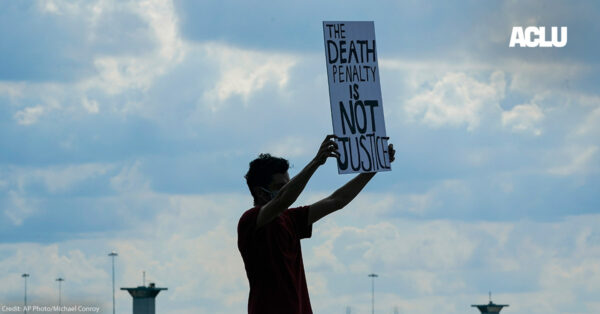Texas
OCA-Greater Houston v. Paxton
Texas has growing Hispanic and Black populations that helped propel record voter turnout in the November 2020 election. The Texas Legislature responded to this increased civic participation with an omnibus election bill titled Senate Bill 1—SB 1 for short—that targeted election practices that made voting more accessible to traditionally marginalized voters like voters of color, voters with disabilities, and voters with limited English proficiency. Since 2021, SB 1 has resulted in tens of thousands of lawful votes being rejected, and it remains a threat to democracy in Texas.
Status: Ongoing
View Case
Featured
U.S. Supreme Court
Sep 2023

Women's Rights
Racial Justice
United States v. Rahimi
Whether 18 U.S.C. § 922(g)(8), which prohibits the possession of firearms by persons subject to domestic-violence restraining orders, violates the Second Amendment on its face.
U.S. Supreme Court
Jun 2023

Reproductive Freedom
Danco Laboratories, LLC, v. Alliance for Hippocratic Medicine; U.S. FDA v. Alliance for Hippocratic Medicine
The American Civil Liberties Union joined over 200 reproductive health, rights, and justice organizations in an amicus brief to the Supreme Court in support of an emergency request to stay a decision issued by the Fifth Circuit Court of Appeals that severely restricted the use of mifepristone — a medication used in most abortions in this country — and threatened the innovation of new drugs and the ability of Americans to access lifesaving drugs.
U.S. Supreme Court
Dec 2021

Reproductive Freedom
Whole Woman's Health v. Jackson
The American Civil Liberties Union, the ACLU of Texas, and coalition partners filed a federal lawsuit on behalf of abortion providers and funds on July 13, 2021, challenging S.B. 8, a Texas law allowing private citizens to enforce a ban on abortion as early as six weeks in pregnancy—before many know they are pregnant. The ACLU’s challenge made its way to the U.S. Supreme Court three times in as many months. After hearing oral arguments in the case, the Court issued a decision on December 10, 2021, that ended the most promising pathways to blocking the ban. The Supreme Court’s decision makes it more difficult to obtain adequate relief from the courts and gives states the green light to ban abortion using bounty-hunting schemes. Texas’ abortion ban will remain in effect until relief can be secured from a court.
Texas
Jul 2021

Prisoners' Rights
Criminal Law Reform
Sanchez et al v. Dallas County Sheriff et al
Decarceration has always been an emergency, a life and death proposition, but COVID-19 makes this effort intensely urgent. The ACLU has been working with our partners to litigate for the rights of those who are incarcerated and cannot protect themselves because of the policies of the institutions in which they are jailed.
All Cases
42 Texas Cases

Texas
Sep 2024
Voting Rights
America First Policy Institute v. Biden
The ACLU, along with several partner organizations, are representing the rights of voters by intervening in a lawsuit that seeks to make it harder for Americans across the country to register to vote, including in the upcoming 2024 election. In 2021, President Biden signed an executive order aimed at promoting access to voter registration and election information to eligible voters on a nonpartisan basis. Now, on the eve of the 2024 election, a small group of political candidates and election administrators seek to block the executive order, based on speculation and unfounded claims of election manipulation and noncitizen voting. The ACLU and its partners are fighting to preserve the ability of eligible Americans to register to vote, in accordance with federal law.
Explore case
Texas
Sep 2024

Voting Rights
America First Policy Institute v. Biden
The ACLU, along with several partner organizations, are representing the rights of voters by intervening in a lawsuit that seeks to make it harder for Americans across the country to register to vote, including in the upcoming 2024 election. In 2021, President Biden signed an executive order aimed at promoting access to voter registration and election information to eligible voters on a nonpartisan basis. Now, on the eve of the 2024 election, a small group of political candidates and election administrators seek to block the executive order, based on speculation and unfounded claims of election manipulation and noncitizen voting. The ACLU and its partners are fighting to preserve the ability of eligible Americans to register to vote, in accordance with federal law.

U.S. Supreme Court
Sep 2024
Capital Punishment
Tabler v. Lumpkin
In Tabler v. Lumpkin, the ACLU represents a Texas death row prisoner whose lawyers refused to represent him at a hearing to determine his capacity to decide whether to give up his state post-conviction appeals, leaving him effectively unrepresented at that hearing. Our petition asks the Supreme Court to review Richard Tabler’s case and to hold that when a defendant’s lawyers abandon him, his waiver of further appeals should not bar his access to federal habeas corpus review of the constitutionality of his conviction.
Explore case
U.S. Supreme Court
Sep 2024

Capital Punishment
Tabler v. Lumpkin
In Tabler v. Lumpkin, the ACLU represents a Texas death row prisoner whose lawyers refused to represent him at a hearing to determine his capacity to decide whether to give up his state post-conviction appeals, leaving him effectively unrepresented at that hearing. Our petition asks the Supreme Court to review Richard Tabler’s case and to hold that when a defendant’s lawyers abandon him, his waiver of further appeals should not bar his access to federal habeas corpus review of the constitutionality of his conviction.

Texas
Sep 2024
Free Speech
Little v. Llano County
On September 10, 2024, the ACLU and the ACLU of Texas filed an amicus brief in the U.S. Court of Appeals for the Fifth Circuit to protect the public’s right to access books and ideas at public libraries free from government censorship.
Explore case
Texas
Sep 2024

Free Speech
Little v. Llano County
On September 10, 2024, the ACLU and the ACLU of Texas filed an amicus brief in the U.S. Court of Appeals for the Fifth Circuit to protect the public’s right to access books and ideas at public libraries free from government censorship.

U.S. Supreme Court
Jul 2024
Free Speech
LGBTQ Rights
Free Speech Coalition, Inc. v. Paxton
Whether a content-based regulation that burdens adults’ access to protected speech has to be merely reasonable to satisfy the First Amendment because it was passed in the name of protecting children from sexual material online.
Explore case
U.S. Supreme Court
Jul 2024

Free Speech
LGBTQ Rights
Free Speech Coalition, Inc. v. Paxton
Whether a content-based regulation that burdens adults’ access to protected speech has to be merely reasonable to satisfy the First Amendment because it was passed in the name of protecting children from sexual material online.

U.S. Supreme Court
Jun 2024
Free Speech
Henderson v. State of Texas
This case is about whether states can hold people criminally liable for obstructing a passageway based solely on their participation in a peaceful march on public sidewalks and streets, without evidence that they knowingly or intentionally obstructed any passageway themselves or directed, authorized, ratified, or intended that others do so. Representing three protesters who were convicted under such circumstances in Texas state court, our petition urges the U.S. Supreme Court to affirm that, under settled constitutional law, the answer is “No.”
Explore case
U.S. Supreme Court
Jun 2024

Free Speech
Henderson v. State of Texas
This case is about whether states can hold people criminally liable for obstructing a passageway based solely on their participation in a peaceful march on public sidewalks and streets, without evidence that they knowingly or intentionally obstructed any passageway themselves or directed, authorized, ratified, or intended that others do so. Representing three protesters who were convicted under such circumstances in Texas state court, our petition urges the U.S. Supreme Court to affirm that, under settled constitutional law, the answer is “No.”
